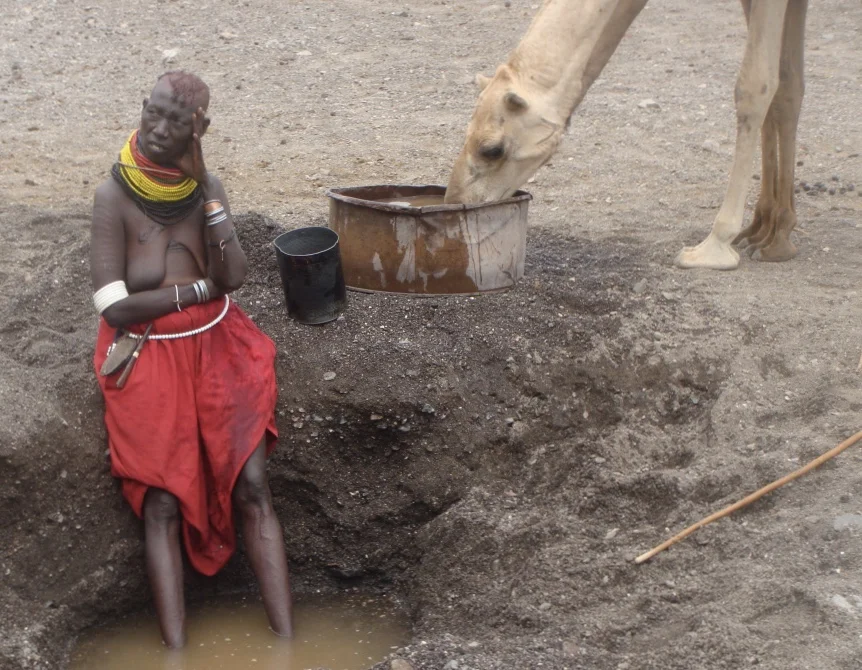The lady in the picture, let’s call her Mtoma as I never did find out her real name, is a daily reminder of how I used to engineer safe drinking water to drought inflicted populations all over the world. This was a valuable job, no doubt, but drilling wells and installing hand-pumps will ultimately be abandoned as the consequences of climate change take hold and Mtoma’s home becomes uninhabitable, as will a third of existing land mass across the globe, unless we cut carbon emissions quickly and drastically.
The continual natural disasters effecting Mtoma and her family are causal and start here, at home, in the UK. And although I call them natural, the line is blurred as to which of the extreme weather events experienced across the globe are now man-made. Is the famine in Sub-Sahara Africa linked to consumerism in Europe and America? Many highly qualified scientific experts have validated, verified, peer-reviewed data that confirms that it is. And is this just another episode in our imperialist history?
In part the book was inspired by my own need to try and understand Mtoma and her family. Instead of treating her as an engineering challenge to be solved, I wanted to try and understand her desires and fears. I wanted to explore my hidden bias and privilege in the work I carried out there and, having grown up as a colonial in Sudan and Nigeria, I wanted to dissect my own inherited beliefs with a creative scalpel. When is a white saviour not a white saviour?
My hope is that the book will generate a conversation about our relationship with indigenous populations and challenge some sticky thinking. In addition to this, I hope others will join me on these pages and discuss their own multi-cultural work, whether it be accounts from abroad about the human cost of environmental destruction or creative work that explores similar themes. But ultimately I hope to expose the links between economic and cultural systems in the UK and their impact abroad.

THE SPLITTER
A novel by Alexandra Jellicoe
Alice Edwards untethers abruptly from her flawed but previously reliable parents when her mother, Ivy Edwards, confides that Fred Edwards is not Alice’s real dad. Betrayed and angry, Alice pursues a career with the Healthy Kids charity to feel closer to her father, Ben Harraway, an aid worker and her mother’s lover during the Ethiopian Famine of 1984.
In 2009 Amejen, Alice’s translator and an orphan of drought, helps Alice navigate the hidden social codes of the Turkana tribe of North Kenya. Tasked with finding water in a hostile desert, both women discover the fabric of their identity entwined with looming disaster as the seasonal rains fail and the tribes run out of food. Tragedy forces Alice to challenge the cultural certainties of her home country and finding them wanting, she and Amejen resolve to act.